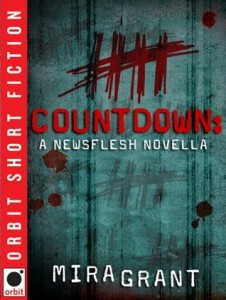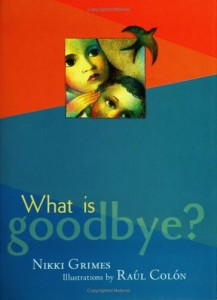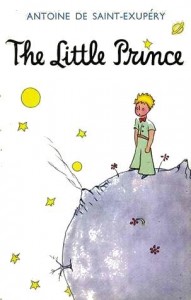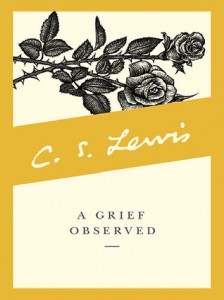I have some books lined up for review but I thought I’d get the shorter ones out of the way with another round of mini reviews. :)
 Countdown by Mira Grant
Countdown by Mira Grant
Newsflesh # 0
Publisher: Orbit
Number of pages: 84
My copy: ebook, bought from Amazon Kindle Store
The year is 2014, the year everything changed. We cured cancer. We cured the common cold. We died.
This is the story of how we rose.
When will you rise?
* * *
This is actually one of the last books I read for 2011, and I got this because I’m such a loyal reader of Mira Grant and her Newsflesh universe. Countdown is the a prequel to her story and it narrates just how the Rising happened through the different perspectives involved in the story. I liked how the story wasn’t really as simple as how it seemed when Georgia talked about it in Feed. There were so many people involved, some that were already known such as the developers of the cure, and also some unknown people like the activists that caused the virus to go out. It had just enough detail without being too scientific or too political, and the growing terror of what just might happen because of the chain of events was very well conveyed. The slow unveiling of the effects of the new virus strain was horrifying at its best and you just know that it’s too late when it all comes down.
While there’s no Georgia or Shaun in this book yet, we get a glimpse of their parents and how they got involved and what happened that could have led them to adopting the two. It wasn’t really narrated as a whole, but when the book is done, it’s easier to connect the dots.
This isn’t a required reading to fully understand the series, but for fans who are itching to read the last book in the trilogy, Countdown is a good pick to satiate this hunger.
Rating: [rating=5]
 What is Goodbye? by Nikki Grimes, illustrated by Raul Colon
What is Goodbye? by Nikki Grimes, illustrated by Raul Colon
Publisher: Hyperion
Number of pages: 64
My copy:Â hardbound, gift from KD
Jerilyn and Jesse have lost their beloved older brother. But each of them deals with Jaron’s death differently. Jerilyn tries to keep it in and hold it together; Jesse acts out. But after a year of anger, pain, and guilt, they come to understand that it’s time to move on. It’s time for a new family picture-with one piece missing, yet whole again. Through the alternating voices of a brother and sister, Nikki Grimes eloquently portrays the grieving process in this gem of a book that is honest, powerful, and ultimately hopeful.
* * *
I read and loved Nikki Grimes’ A Girl Named Mister so I was very excited to get this book from Kuya Doni during one of our Goodreads meet ups. A slim volume with illustrated pages, this is a book that discusses griefs and its different effects on people struggling with it. Jerilyn and Jesse just lost their older brother — too much too soon that they are at a loss at how to deal. Jerilyn holds it all together, showing an unruffled exterior but inside she is just as broken as how Jesse acts out. Questions about life, death and family surface and we get to see how the siblings and the rest of the family dealt with this loss. It will never be the same again, but it doesn’t mean they can’t be whole.
Nikki Grimes’ poetry was easy to read and the illustrations were a good complement to the story. True to form, I found myself shedding some tears at a certain page, and I honestly cannot imagine losing my one and only brother too soon to death. While this book offers no solutions on how to handle grief and death and loss, it shows a hopeful picture that someday, it will all be okay.
Rating: [rating=4]
 The Little Prince by Antoine de Saint-Exupery
The Little Prince by Antoine de Saint-Exupery
Publisher: Egmont
Number of pages: 96
My copy: paperback, bought from National Bookstore
A pilot forced to land in the Sahara meets a little prince. The wise and enchanting stories the prince tells of his own planet with its three volcanoes and a haughty flower are unforgettable.
* * *
I read this book sometime during high school, I think, not because of a school requirement but because people around me were quoting it and such. I remember being partly fascinated by it, but not so much to make it a favorite book. I just know that this book had a memorable line that everyone seems to know: It is only with the heart that one can see rightly. What is essential is invisible to the eye.
I ended up reading the book again for our book club’s discussion, and seeing that it was a short book, I read it just a few days before the discussion happened. Still the same — the book had that whimsical feel, with the little prince’s innocence and stories bringing the pilot (and the readers) to wonder if this little prince was the real thing. The book didn’t bring any new emotions, but it reminded me of just how sad I felt when I got to the end. I remember not knowing the answer to the question: what do you think happened to the little prince?
Nevertheless, the book gained more meaning to me after my friends and I had a very good (and brain-frying) discussion on it. Despite its thinness, The Little Prince is one of those books that pack a pretty heavy punch with its different adages that is pretty much applicable to so many things in life. I’d like to believe that people of all ages will be able to pick something interesting in this book, even if it gets a wee bit childish for older readers. After all, this was written as a children’s book.
However, I would have to agree: the meat of the book really happens with the prince’s conversations with the fox. Don’t get me wrong — the rest of the book was pretty lovely as well, but if you need the most popular quotes in the book, just look for that chapter. It’s pretty much all there.
Rating: [rating=4]



 A Grief Observed by C.S. Lewis
A Grief Observed by C.S. Lewis